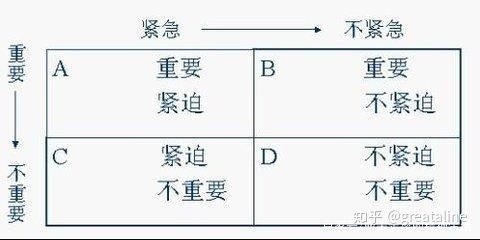Time management is all about making the most effective use of your time and working smarter, not harder. It requires planning, and then sticking to the plan – and that takes discipline.
According to the Pareto principle or 80/20 rule, 80 per cent of results come from 20 per cent of effort. That means that of all the things you do, 20 per cent are vital and 80 per cent don’t contribute much. Just think of how much you would achieve if you focused more effort on the 20 per cent that really matters!
So for the workaholics out there, we've put together 11 tips to help you maximise your time!
1. Set clear goals
It’s important that you know what your short-term and long-term goals are – this will enable you to differentiate between what’s important and what’s not. It’s only when you know where you want to go and what you want to achieve that you can figure out exactly what needs to be done, and in what order. Once you are clear about your goals, you can plan and prepare a sequence of action steps to achieve them.
2. Make a to-do list
To-do lists are your best friend. They can increase your productivity by 20 per cent, help to clear your mind, and save you energy and stress.
Start your day by spending five to ten minutes planning your activities for the day – or, better still, prepare your list the evening before. Write out your tasks either on paper or on your computer. Break down large or complex tasks into smaller pieces – chunk them down into do-able, manageable units that don’t feel too big or daunting, and focus on one at a time. As you complete your tasks, cross them off – it’s a very satisfying feeling!
3. Prioritise
There’s a good chance you won’t get everything on your to-do list done, but make sure you get the most important things done. That means you have to prioritise the tasks on your list and figure out what is actually most important, as well as most urgent (not necessarily the same thing). It’s helpful to number your tasks or assign them ABC status by giving the most important tasks an ‘A’, the next most important ones a ‘B’, and so on.
4. Make a schedule
Using your to-do list and prioritisation as a base, make a schedule for the day and for the week, including time for breaks and contingencies. The schedule needs to be realistic, with padding for interruptions and unscheduled events. How much contingency time you need to build in will depend on the nature of your work.
Having a schedule means you won’t have to waste time and energy thinking about what you have to do next – just follow your schedule.
5. Stop procrastinating and just do it
Everyone is guilty of procrastinating, but for some it’s a chronic problem that is a major obstacle to success. You know that looming report or assignment isn’t going to go away, so you just have to bite the bullet and get stuck in.
It’s important to look at the causes of your procrastination – is it because you’re waiting for the ‘right’ time or mood, underestimating the time required or difficulty of the task, fear failure (or success), or have just developed a very bad habit? The only way to break a habit is to consistently act in other ways – so stop putting things off and just do it.
6. Manage your emails and phone calls
For many, emails and phone calls constitute the single biggest obstacle to effective time management. Unless you need to be constantly available and accessible, avoid continuous email notification and let your phone go to voice mail – these things can suck up untold minutes and hours, and make you repeatedly lose focus.
You need to give yourself solid chunks of time to concentrate on your work. Read and respond to emails in blocks only a few times a day so you’re not constantly chopping and changing what you’re doing. This may necessitate reconditioning others and their expectations of you, so they won’t expect immediate responses but will know that you will respond at specified times.
7. Keep a time log
It’s useful to track your daily activities and how much time each takes. This will give you a realistic view of how you spend your time, as well as what interruptions there are, and you might be surprised by how much time certain tasks actually take or how much time is wasted in ways you don’t even realise.
Also note what your energy levels and focus are like at different times of the day. This will enable you to figure out which activities you should be doing at what time of day – you should schedule your most challenging tasks for when your energy level is greatest. For example, if you’re most focused and creative in the morning, then use that time to do your writing or brainstorming, and don’t waste that time responding to emails.
8. Take regular breaks
Breaks will keep your mind fresh and you will be able to return to your work with better focus. If you work straight through, you will put in more hours but work less productively.
Stick to allotted break times. You might want to try the Pomodoro technique to see if it increases your productivity. In this time management technique, you work in 25-minute segments (Pomodoros) with 5-minute breaks between each period, and a longer break every four Pomodoros. Some people swear by this technique as a way of increasing their focus and efficiency.
9. Put good systems in place
Being organised and having good systems for filing emails, computer documents and papers will save you many valuable hours in the long run – so spend some time initially setting up your systems, then you won’t have to worry about it.
10. Delegate
You probably don’t have time to do everything yourself, so if you can, delegate less important tasks, or tasks that would be better performed by someone else.
11. Learn how to say no
This is extremely important; your time and resources are limited, so you can’t say yes to everything and accede to every request. You have to stick to what’s important and know when to just say, ‘No’.
Learning how to squeeze more into your day, and knowing how to make the most of your time is essential to your career and work/life balance! So put our tips to use and see your productivity soar!
时间非常重要,因为这个世界上唯独时间,它对每个人都是公平的。每个人一天都只有24个小时,但是每个人利用时间的方式都不同,有的人每天坚持长跑、写作,最终成就了小说家的身份;而有的人则在懒癌、拖延症的路上越走越远,什么事情也没有做好。这是因为他们没有做好时间管理。
时间管理
时间管理的意义在于让我们掌握高效工作的技巧,通过对于时间的灵活应用,帮助我们完成既定的目标。在商业管理教育中,时间管理能力是对企业管理者的一项基本要求。同时,时间管理对于每一个追求高效生活的人都有着积极的影响。
我们应该从哪些方面做好时间管理呢?
1.要有明确的人生目标
如果你没有明确的人生目标,那么你是无法做好时间管理的。因为时间管理本来就是要克服阻碍的,没有目标很容易让人迷茫,难以克服自己拖沓的习惯。
忘情投入时会产生“心流”
所以,你要做的是找到你的兴趣,发现你擅长做的事情,确立出一个人生目标。找到自己的兴趣点是很有必要的。面对你没有兴趣的事情,你可能会花掉40%的时间,却只有20%的效果。而面对你感兴趣的事情,你可能花100%的时间,得到了200%的效果。兴趣能够给予我们全身心投入到工作中的力量。
在你进行时间管理之前,写出你的人生目标清单,它可以是考研的目标大学、升到管理层、攒钱买一套自己的房、环游世界等等。
2.记录时间
“只有对时间流逝的高度敏感,你才能成为一个高效的时间管理者。”大家不妨回忆自己过去的72小时是怎么度过的。我想,大部分人根本记不清自己大概花了多长时间做了什么事情。你可以在接下来的三天,记录自己在每一件事上大概所花的时间,比如你在睡觉、吃饭、看视频、刷朋友圈等这些项目上花了多长时间。
时间的流逝
为什么要在这里强调要记录时间?因为我们其实被一群争夺我们时间与精力的“小偷”包围着,比如路经街边,每个商店都在用大大的广告牌吸引着我们的注意,企图把手伸进我们的钱袋。而我们的手机里的软件也在想尽办法抢走我们的时间和注意力。如果你选择被周围的环境控制,那么不仅你的钱财会散尽,你的时间也会不翼而飞。
记录时间让你知道你的时间究竟去了哪里,而这个行为本身也是一种惊醒,当你意识到自己消耗了大量的时间在无意义的事情上时,你还会心安理得吗?你的时间记录也是研究自己如何高效利用时间的一项参考数据,你可以看到自己在哪些事情上花的时间过多,接下来进行逐步调整,以停止止损。
3.优先做重要的事情
当你手头攒了大量的待办事务时,把它们分成紧急且重要、重要不紧急、紧急不重要、既不重要也不紧急,按轻重缓急排好事情的优先级别。在每天工作之前,把各个待办事项有序排列,能大大提高你一天的工作效率,减少失误。
时间管理优先矩阵
最重要且紧急的事情,一出现你就要及时处理,但是你可以思考如何将事情精简。这里要强调的是最重要但不紧急的事情,它是你每天都要做的,尽管短期内你看不到它对你生活带来的变化。但从哲学的观点来看,量的积累达到一定程度必然会发生质变,就比如你每天坚持有效率的学习英语,一年后你的能力自然会得到显著提升。不重要但紧急的事情,要学会适当放弃,或是请求他人帮忙。对于不重要也不紧急的事情,尽量就不要做了。
总而言之,在我们所要做的事情中,首先做最有价值的事情。人的价值一般是通过他所做的事情的价值来体现出来的。
研究显示,我们每天都一个2-2.5小时的效率高峰期,它通常在醒后几个小时。这段时间适合做一些富有挑战性的工作,而这个时间你在做什么呢?欢迎你在评论区留言交流!



